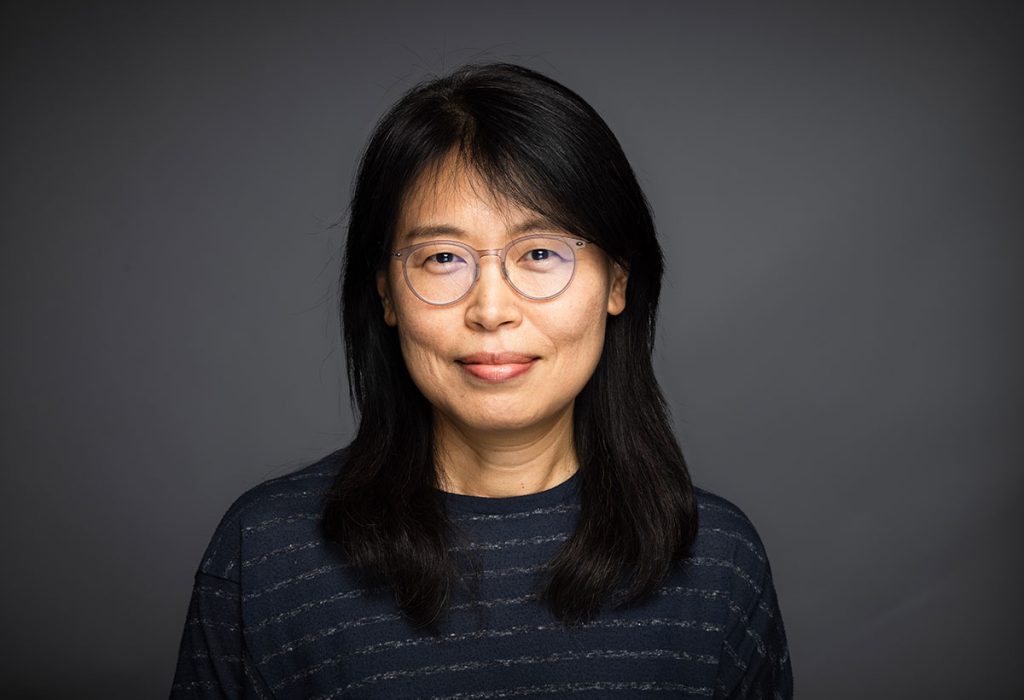Kyung Min Noh, a European Molecular Biology Laboratory (EMBL) Group Leader originally from South Korea, has been awarded a DKK 20 million grant spanning the next seven years and will be locating to the Department of Biomedicine at Aarhus University. The Novo Nordisk Foundation's mission to draw global talent to Denmark is essential in establishing the nation as a leading hub for pioneering biomedical research and innovation. Professor Noh's relocation to Denmark to conduct vital studies exemplifies this commitment.
Neurodevelopmental and neuropsychiatric diseases, such as schizophrenia and major depressive disorder, affect millions globally. Despite several treatments being available, there remains a critical need for new and more effective therapeutic strategies. Kyung Min Noh’s groundbreaking research aims to fill this gap.
With an Ascending Investigator research grant of DKK 20 million from the Novo Nordisk Foundation’s Research Leader Programme, Kyung Min Noh will investigate the chromatin mechanisms that regulate neurodevelopment and their role in neurodevelopmental disorders. Her goal is to elucidate the molecular basis of chromatin regulation and its impact on gene expression programs in the brain.
“Traditionally, the brain has been a challenging area to alter due to its limited regenerative potential. Unlike the liver or skin, brain cells are difficult to regenerate, and brain circuits are hard to reform. However, we now know that chromatin changes can lead to systemic changes, offering the opportunity to rewire brain circuits,” explains Kyung Min Noh.
A transformative study in Denmark will pave the way for novel treatments.
In the seven-year study, Kyung Min Noh and her team will investigate the role of chromatin regulators in neurodevelopment and brain disorders. This includes stratifying the functional role of these regulators, determining the consequences of disrupted heterochromatin, and evaluating the relationship between chromatin changes and brain cell complexities using spatial omics.
“This is not trivial because you have to sequence the entire genome and interpret it. Many parts of the regulatory process of the DNA get changed, so we have to sequence all this DNA that is highly active or highly repressed using various omics tools. We can identify differences between different cell types, between different individuals, which DNA sequences are more active or repressed. In this way, we can stratify or identify the functional regions of the genome linked to disease status. Also, we can find the molecular pathways causing these states to happen,” says Kyung Min Noh.
Kyung Min Noh emphasises the importance of functional genomics in her research. “We engineer and specifically target certain chromatin regulatory processes, then try to identify parts of the genome that are more active or repressed. By using functional genomics with single-cell readout, we can test hundreds of different targets and conditions all at the same time. This approach allows us to test multiple hypotheses and reduce noise and variation between experiments.”
The outcomes of this research could revolutionise clinical approaches to treating neurodevelopmental and neuropsychiatric diseases, according to Noh:
“Understanding the molecular basis of these diseases can lead to more effective targeted therapies with fewer side effects, significantly improving patient quality of life.”
41 researchers have received grants
The grant to Kyung Min Noh is part of the Novo Nordisk Foundation’s Research Leader Programme. The Foundation has recently awarded DKK 427 million through the Programme for research within fields including health, disease and sustainability.
Individual grants have been awarded to 41 researchers at three different career stages. Most grants are DKK 10 million for five years, while two larger grant of DKK 20 million for seven years have been awarded to support relocation from abroad to Denmark.
See all grant recipients here:
https://researchleaderprogramme.com/recipients/
Since 2018, the Foundation has awarded grants to more than 240 researchers through the Programme.
Read more about the Foundation’s Research Leader Programme here.
https://researchleaderprogramme.com/
Short Bio: Dr. Kyung Min Noh
Since 2014, Dr. Kyung Min Noh has served as a group leader at the European Molecular Biology Laboratory (EMBL), Genome Biology Unit in Heidelberg, Germany, with a co-affiliation in Epigenetics and Neurobiology at EMBL Rome. Her expertise spans neurobiology, molecular biology, (epi)genomics, and gene regulation. She explores chromatin regulation, particularly its implications in normal neurodevelopment and its misinterpretations associated with cognitive and developmental disorders of the brain. She has established a robust interdisciplinary research program utilizing advanced methods and actively fosters collaborations with diverse backgrounds.
At EMBL, Dr. Noh has authored 13 papers, with five as the corresponding author, and three preprints currently in revision where she is also the corresponding author. Her contributions have played a pivotal role in advancing the field of intersecting chromatin biology and neurobiology.
In her earlier role as a postdoctoral researcher at Rockefeller University in New York, her research focused on epigenetic regulators, covalent modifications of DNA and histones, and histone variants shaping our epigenome landscape. She published 11 papers, including four as the first author.
As a PhD student at the Albert Einstein College of Medicine in New York, Dr. Noh’s research centered on the molecular and cellular mechanisms underlying delayed neuronal cell death induced by global ischemia in the rodent hippocampus. She published nine papers, with three as the first author, and received the Julius Marmur Award for being one of the best graduate students in 2008.
Her early research in Korea involved studying various drug responses in cultured cortical neurons, resulting in four first-author papers, which motivated her to pursue a PhD abroad.

